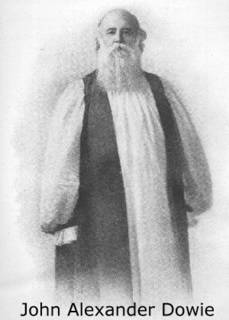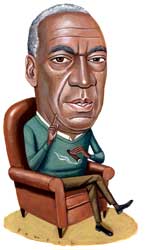
Dr. Yusef Lateef
What has enriched his life is not only his love for music, but his evolution as a man, a father, a Muslim. It is a path he continues to follow today. “Music was always a vocation…a way to make an honest living, but Islam is my life. -- yusef lateef, 2004
If you can imagine in your wildest dreams being dropped in a time machine and catapulted through history as the years whirled by giving you a glimpse into the life of one of America’s foremost and greatest musician.
It would be the opportunity of a lifetime. Yet, a somber and attentive audience chanced upon such an occasion in Milwaukee this past weekend, as the legendary Yusef Lateef, a virtuoso musician, composer, arranger, educator, and author opened a window into his life. It was to be an eloquent and graceful personal glimpse into the world of a gentle giant with a love for the music but his passion has always been education and a spiritual quest to grow closer to God.
The Ahmadiyya Muslim Community in Milwaukee, in celebration of Black History Month, honored and paid tribute to Dr. Yusef A. Lateef, who accepted Islam and became a member of the Ahmadiyya Community in 1948. The program booklet was graced with one of his many album covers, but this one was special: “Yusef Lateef’s Detroit.” Above the youthful image of Lateef was the community’s welcome message: “Milwaukee welcomes Yusef Lateef with love.”
The audience at the Park Lawn YMCA was soon to have a special treat after he was introduced Lateef made a correction in the program biography regarding his Christian name. “I was born William Emanuel Huddleston, not William Evans,” he said softly.
Before the curtain would drop on this historical moment, the audience would be inspired, motivated and mesmerized by an 84-year-old man who has traveled the world. He took an $80 alto sax and his music to earn a decent living for his family, but it would be faith and his thirst for education to “pursue knowledge, even though it be in China. To pursue knowledge from the cradle to the grave,” were the words and beliefs he absorbed as a Muslim.
Lateef has devoted the greater part of his life to education. Although he was playing music, making recordings, he pursued higher education and after 10 years, Lateef was awarded his Bachelor’s Degree in Music in 1969 and his Master’s Degree in Music Education in 1970. He is a Five Colleges professor at the retired from the University of Massachusetts in Amherst, MA, from which he was awarded a Ph.D. in Education in 1975. His doctoral dissertation was entitled "An Overview of Western and Islamic Education."
From August 1981 until August 1985, Lateef was a senior research Fellow at the Center for Nigerian Cultural Studies at Ahmadu Bello University in Zaria, Nigeria, where he did research into the Fulani flute.
As he shared his experiences in West Africa, Lateef, the story teller would push a pause button in his memory bank, rewind as if he missed a memorable note. “Oh yes, yes…there was much dignity to that job.” And with that, he would push the play button and the audience would move on to the next melodic riff in a colorful life.
He was once asked, Why did you journey to Africa?
”I did research there at the Ahmadu Bello University in Zaria, Nigeria into the Fulani flute, which is called the sarewa. I did that and I also taught research methodology to Nigerian cultural offices. I had a third duty. I interacted with the drama and African musicians formulating convocational plays and things of that nature. In fact, we were invited to a festival of nations in Bulgaria and we took a play that was put together called Queen Amina, based on the real life queen who lived in northern Nigeria about three hundred years ago. I spent four years in Africa.”
Again the pause button: “We were asked to play in an international music festival in Sophia, Bulgaria, an experience I will never forget. You know that was during the time of communism. The government would pick up drunks on the streets and lock them up for the night. I remember visiting a mosque in Bulgaria, but they wouldn’t let me pray there. As I walked in to say my prayers, people began to whisper, “no, you can’t do that here.”
Hit the play button, again: “In Nigeria We put on Queen Amina and there was a chorus in the background to express the feelings that we are trying to project to the audience when Queen Amina was assassinated and I had given them a minor chord to articulate and it evolved from a minor chord into a chordal chord each rehearsal and so I just let it stay that way because that was expressing grief to them. I learned about attitudes in terms of what kinds of sounds can express feelings, which I found to be quite different than I had found here in America.”
Although he is a highly acclaimed Grammy award winning icon in the music world and a man of many awards and educational accomplishments, his journey through time always begins with a young boy in Detroit absorbing the many sounds of life, love and spirituality hanging around two intersecting streets, Russell and Elliott.
With a shy look, Lateef tells the story about his Detroit Album, “You know,” he said, shuffling and moving around as if the words he searched for were going to emerge on the monitor in his mind. “People think that Russell and Elliott is a number about two friends of mine. It’s about two streets in my neighborhood.”
The pause button is once again pushed, rewind and Lateef reminisces about a neighborhood and school that no longer exist, except in his memory vault. “I can remember so many things about that neighborhood. I remember passing this church where you could hear the soulful, spiritual notes that would pour out on the street.” At this point, he began to softly hum those notes, not to the audience, but himself, as he revisited life at Russell and Elliott.
The audience, once again, is captivated and held spellbound as the beauty of Lateef resonates with the consistent message in the embodiment of his life - his spiritual, physical and emotional self began to merge as one.
Throughout this journey his voice was steady, soft and the rich words flowed with kindness and a love for everything around him. “I was a person who always honored those with grey hair. I loved my mother and father. I carried a Bible with me when I was on the road playing music.”
It was in Detroit’s that Lateef discovered his musical gift from God. Music would become a passion, a vocation he would say later, but not his life. He was already proficient on the alto saxophone (with the help of his father, he purchased his first sax for $80) while in high school and at the age of 18 he began touring professionally with swing bands led by Hartley Toots, Hot Lips Page, Roy Eldridge, Herbie Fields and eventually Lucky Millender. In 1949 he was invited to perform with the Dizzy Gillespie Orchestra.
Throughout his musical career, he would become known as the master of reed instruments. It was Lateef who first introduced The oboe, as a member of Yusef Lateef’s performing instrument collection in 1959. Lateef has recorded with musicians such as Miles Davis, Kenny Barron, and Cannonball Adderly, to name a few.
Mr. Lateef has made over forty recordings that can be found on Prestige, Riverside, Impulse, Atlantic, and his own label, YAL Records. He is the first American musician to win the Downbeat Magazine award for oboe and in 1987 he received the Grammy award for "Yusef Lateef's Little Symphony" (Atlantic Records).
A music critic writing about Lateef and his musical reed style said: “Yusef was bringing a whole new sound to reed instruments and to the music world. His approach was uniquely his own. He really was skirting the edges of World Music. This was long before World Music was coined as a popular category. Plus, there was that shocking way he played Oboe. From the start, Yusef just didn’t sound like any other reedman I had ever heard. His approach and style has remained uniquely his own for the past several decades.”
During the question and answer period, the ever so patient Lateef, took time to repeat what he has repeated so often in regards to his music that he does not play Jazz He told the audience that one day he looked in the dictionary for Webster’s take on the word Jazz. He was appalled at what he read. “ there were meanings listed under Jazz like 'nonsense' and 'animation' and some references I can’t even repeat before this audience.”
Consequently, Lateef said he re-labeled his music Autophysiopsychic meaning music that comes from the mental, physical and spiritual self.” Throughout his musical life, Lateef has struggled with that distasteful word – Jazz. The New York Library Research Department on Music wrote: While producers, promoters, retailers, listeners, and indeed many artists, have no interest in facing the marketing difficulties and inconvenience likely to result from a name change, many artists feel quite strongly about this matter. Among those who have lectured and written on the topic is Yusef Lateef. Following is a statement from this master musician and educator.
“Yusef Lateef's appearance in this journal, or in any other medium (written, audio-visual, etc.) does in no way imply that he is a jazz musician, nor is his music jazz. He is a musician, composer and educator. His music may be referred to as autophysiopsychic music.”
As Lateef continues to move through his life, it is learned that he was introduced to Islam in 1947 through friends who had joined the Ahmadiyya Muslim Community, eventually he accepted Islam as his faith along with the Muslim name, Yusef Lateef.
While much of his accomplishments and historical notes in history refer to his music, it is his faith that unveils a deep appreciation for the creator. A continuing quest that reveals a sensitive, god-fearing believer, who has a profound love for Allah. Yet, throughout the many interviews and references to Lateef’s history, there is almost nothing that delves into his rich life as a Muslim.
The astonishing success of his music life has not brought in millions of dollars because as he said, “My generation was all about the music. We played for the love of the music. Today’s artist understand PR and marketing and as you can see they make money.”
What has enriched his life is not only his love for music, but his evolution as a man, a father, a Muslim. It is a path he continues to follow today. “Music was always a vocation…a way to make an honest living, but Islam is my life.
Dizzy Gillepsie makes an interesting observation about musicians who were converts to Islam. He said: “beboppers expressed a preference for religions other than Christianity may be considered only a half-truth, because most black musicians, including those from the bebop era, received their initial exposure and influence in music through the black church.
“And it remained with them throughout their lives. For social and religious reasons, a large number of modern jazz musicians did begin to turn toward Islam during the forties, a movement completely in line with the idea of freedom of religion. Rudy Powell, from Edgar Hayes’s band, became one of the first jazz musicians I knew to accept Islam; he became an Ahmadiyya Muslim. Other musicians followed, it seemed to me, for social rather religious reasons, if you can separate the two.”
Lateef told the audience how he was introduced to Islam by a fellow musician and how he met other Muslims, missionaries and appreciated the universality of Islam. He described a mosque in Chicago, and how he began to read Islamic literature.
“It said through prayer and deeds one’s natural tendencies are directed to the proper channels. The only virtue is in your actions — that’s what Islam teaches. And it spoke about respect of parents and of neighbors, and I already believed those things from my Christian upbringing.”
Lateef was influenced by Talib Ahmad Dawoud who played a major role in introducing musicians to Islam and Ahmadiyyat. While in Chicago, he introduced Lateef to the Ahmadiyya Movement in Islam.
One of the first and most well-known converts to Islam in the jazz community was Art Blakey. Blakey came to Islam after traveling to Africa to study religion and philosophy. In the late 1940s, Blakey was especially devoted to his new religion. His house was a center for Islamic meetings, according to Lateef, who attended these meetings after he converted in 1948.
“I started going to the meetings, and I said, “I better try this.” I thought I ought to change my name, and the reason I did was because Lateef means gentle and amiable, and Yusef means Joseph after the prophet Joseph. And Abdul Lateef means a servant of the gentle and amiable, a servant of God — that’s one of God’s attributes, gentle and amiable. And I said, “That’s something for me to try to live up to.”
The journey with Lateef came to an end with his simple explanation regarding the difference between faith and his music. A writer once asked him, It must never get boring being Yusef Lateef.
He replied: Well, if I keep at it. Life itself is an interesting thing. Life included thinking and it is such a pleasure to think of new ways to do things and to express yourself. That is the beauty that you feel and that you see through observation of nature for example. So you try to express some type of beauty through your music. I am sure that it is a privilege and it is a gift to be alive and try to offer something to culture. You said it, I am enjoying it. We don't know how long we will have this opportunity and so I am enjoying it. It is exciting.
When the soul looks out of its body, it should see only beauty in its path. These are the sights we must hold in mind, in order to move to a higher place. Time after time in our heats and soul we find love. No static, no pain – so pure, so happy to be alive. Waves of love consume us. We find no hatred – just love for all. – an extract from A SYLOGISM by Yusef Lateef.
Dedicated to my friend, Yusef Lateef
-- Hasan (My youngest son was named...Yusef Ibn Hakeem)

Yusef Lateef...
a genius and a man of peace!
Love For All, Hatred For None












